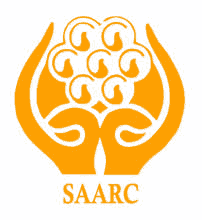News Flash
News Flash

DHAKA, July 15, 2024 (BSS)-The SAARCFINANCE Seminar on "Trading in Local Currencies: Problems and Prospects for the SAARC Countries" was held at a hotel in Chattogram under the auspicious of the SAARCFINANCE Wing, Research Department of Bangladesh Bank on Friday last.
The inaugural session was graced by Abdur Rouf Talukder, Governor of Bangladesh Bank, as chief guest.
Dr. Md. Khairuzzaman Mozumder, Secretary of the Finance Division, Ministry of Finance joined as special guest.
In addition, Dr Md Habibur Rahman, Deputy Governor of Bangladesh Bank delivered the keynote speech at the inaugural session and Dr. Aditya Gaiha, Chief General Manager (in-charge) from the Reserve Bank of India (RBI), was also present as a special guest.
Dr. Sayera Younus, Executive Director (Research) of the Bangladesh Bank presented the welcome remarks.
The audience included delegates from the central banks of SAARC member countries, including those present in person from Bangladesh, Bhutan, India, Nepal, Sri Lanka and those attending online from Pakistan and the Maldives, as well as officials from various government ministries, the Bangladesh Bank, different commercial banks and representatives from various trade bodies in Bangladesh.
Unfortunately, Afghanistan couldn’t participate either in-person or virtually. In addition to the seminar, a meeting of a collaborative study team titled 'Local Currency Settlement in the Case of SAARC Countries' was held on the sidelines.
Dr. Sayera Younus, Executive Director (Research), welcomed the attendants, highlighting the benefits for regional economic development and the seminar's goal of exploring local currency trading among the SAARC countries.
She expressed gratitude to the guests and encouraged foreign delegates to enjoy Chattogram's natural beauties.
After the welcome remarks, Dr. Md. Habibur Rahman, Deputy Governor of Bangladesh Bank, in his key note speech, emphasized on the benefits of trading in local currencies such as reducing pressure on Forex reserves, enhancing bilateral trade and lowering transaction costs.
He also outlined the challenges like exchange rate risk, currency convertibility issues and the need for strong financial infrastructure and market confidence.
He concluded that successful local currency trade requires stable currencies, supportive legal frameworks and regional cooperations.
Dr. Aditya Gaiha, in the inaugural session at the SAARCFINANCE Seminar from RBI pointed out the importance of local currency trading for policy makers, central banks and economic stakeholders.
He marked some challenges such as foreign exchange reserves, external liabilities and macroeconomic instability exacerbated by post-COVID conditions and geopolitical tensions.
He argued that local currencies are crucial in addressing these mentioned challenges, where fifteen to sixteen developing nations have been struggling with the shortage of foreign exchange reserves.
Dr. Md. Khairuzzaman Mozumder, Secretary of the Finance Division, Ministry of Finance, emphasized on the importance of reducing reliance on dominant currencies for the SAARC region.
He pointed out that Bangladesh's ongoing efforts, including bilateral trade agreements with India using local currencies, and stressed the potential benefits of local currency trading in enhancing economic resilience, regional integration and growth.
He expressed gratitude to Bangladesh Bank for organizing the seminar and urged collaborative efforts to overcome challenges and unlock the full potential of local currency trading.
BB Governor Abdur Rouf Talukder emphasized the strategic importance of trading in local currencies for reduced US dollar dependency, economic stability and regional integration.
He discussed Bangladesh's policy changes and digital financial technologies to facilitate this trade and urged collaborative efforts to overcome challenges, also inviting foreign delegates to explore Chattogram's natural sceneries.
The participants from SAARC member central banks from Bangladesh, Bhutan, India, Maldives, Nepal, Pakistan and Sri Lanka presented their individual papers on “Trading in Local Currencies: Problems and Prospects for the SAARC Countries,” and highlighted the benefits of reduced dependency on leading currencies and lower transaction costs.
Distinguished panellists discussed the challenges such as currency stability and the need for robust financial infrastructure.
The primary objective of this seminar is to explore potential strategies and policies among the emerging economies of South Asia to reduce dependence on major global currencies such as the US dollar, Euro and Pound sterling.
The discussions aimed to identify ways to reduce transaction costs, minimize exchange rate volatility, and enhance regional economic integration.
The seminar has delved into the exchange of information and experiences among the SAARC countries, uncovering various aspects of trade strategies in local currencies and ensuring their development in these regions.
Key issues to be addressed include the challenges of transitioning to local currency trading, the impact on existing trade agreements, and the readiness of financial institutions to support such initiatives.